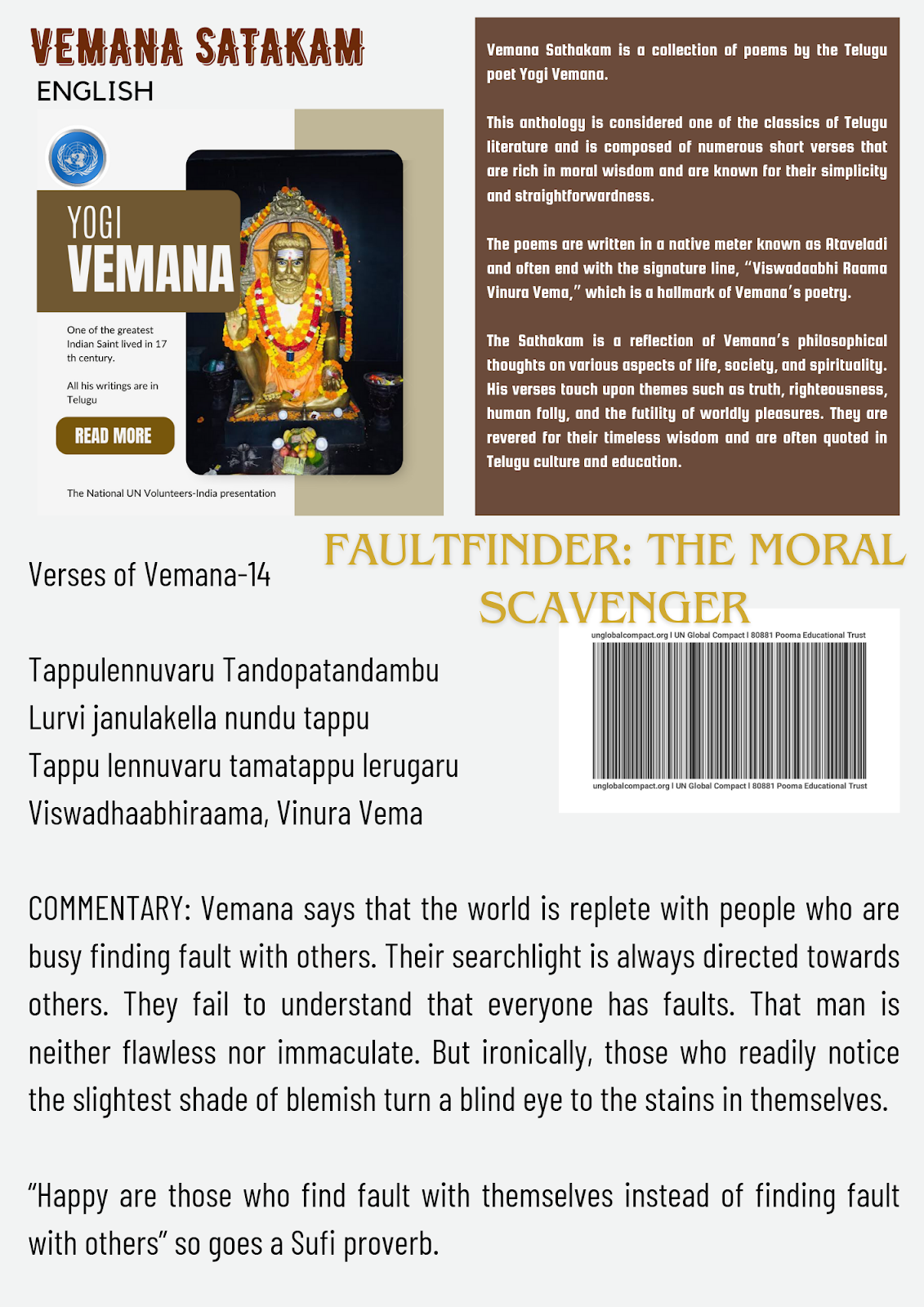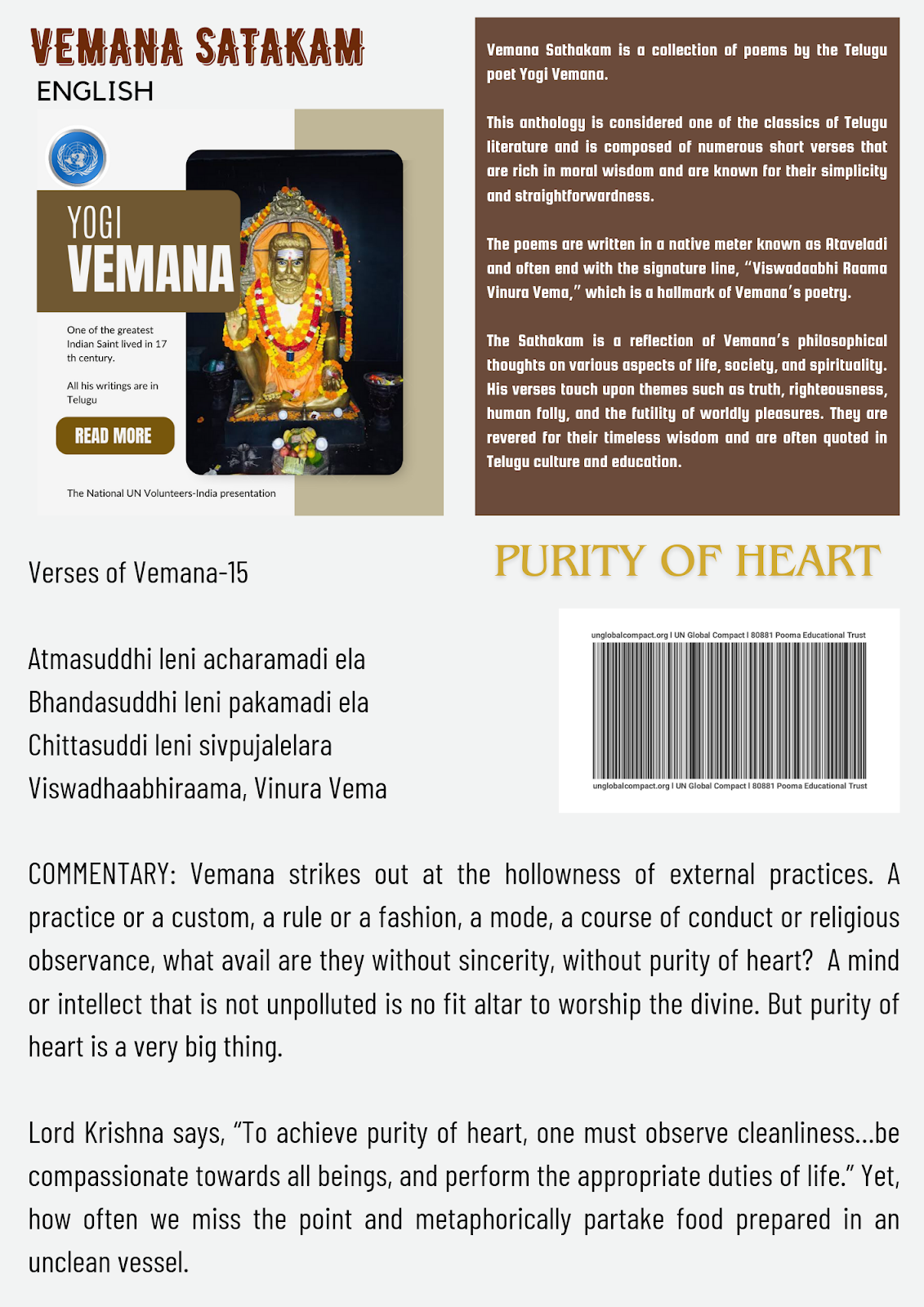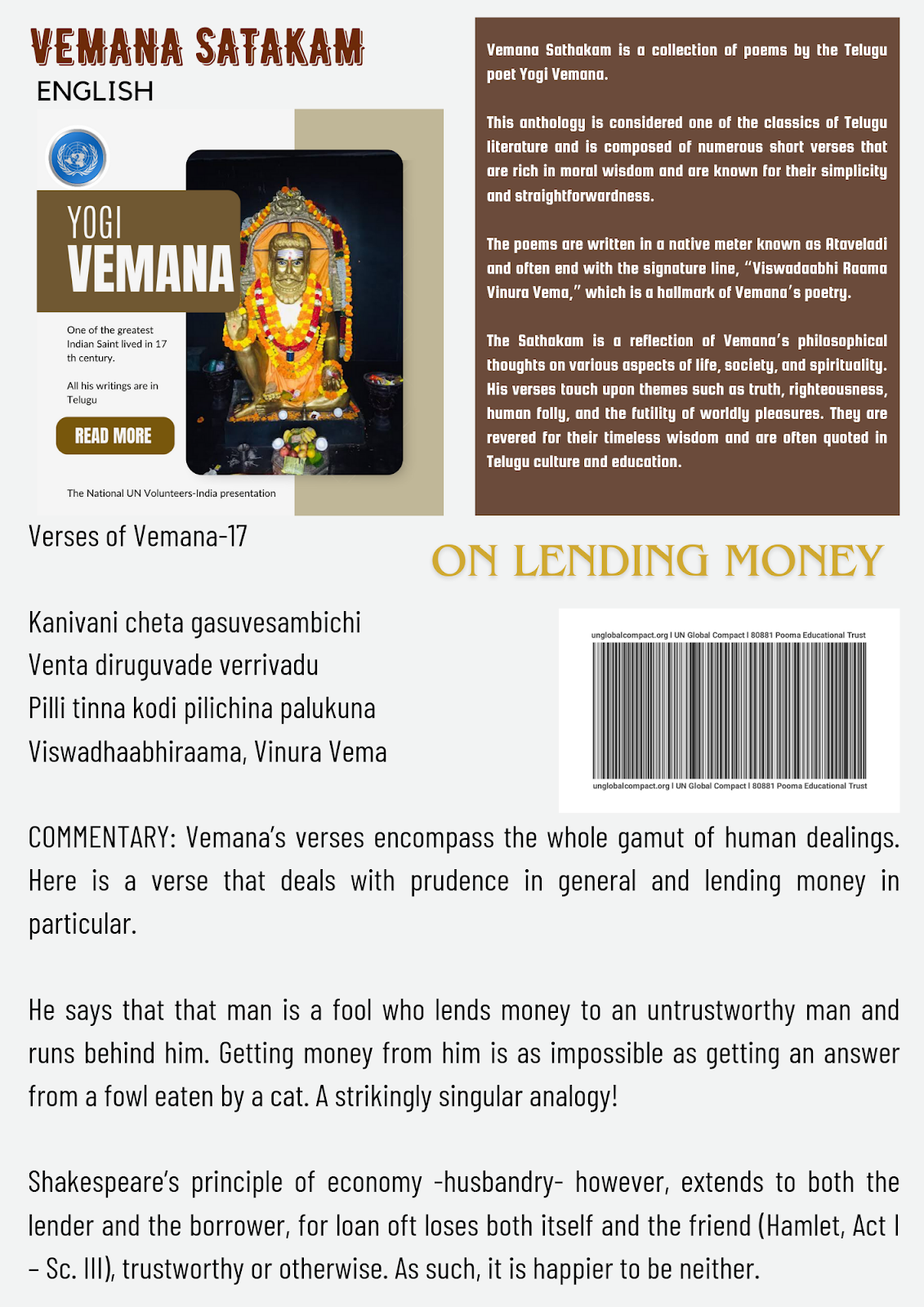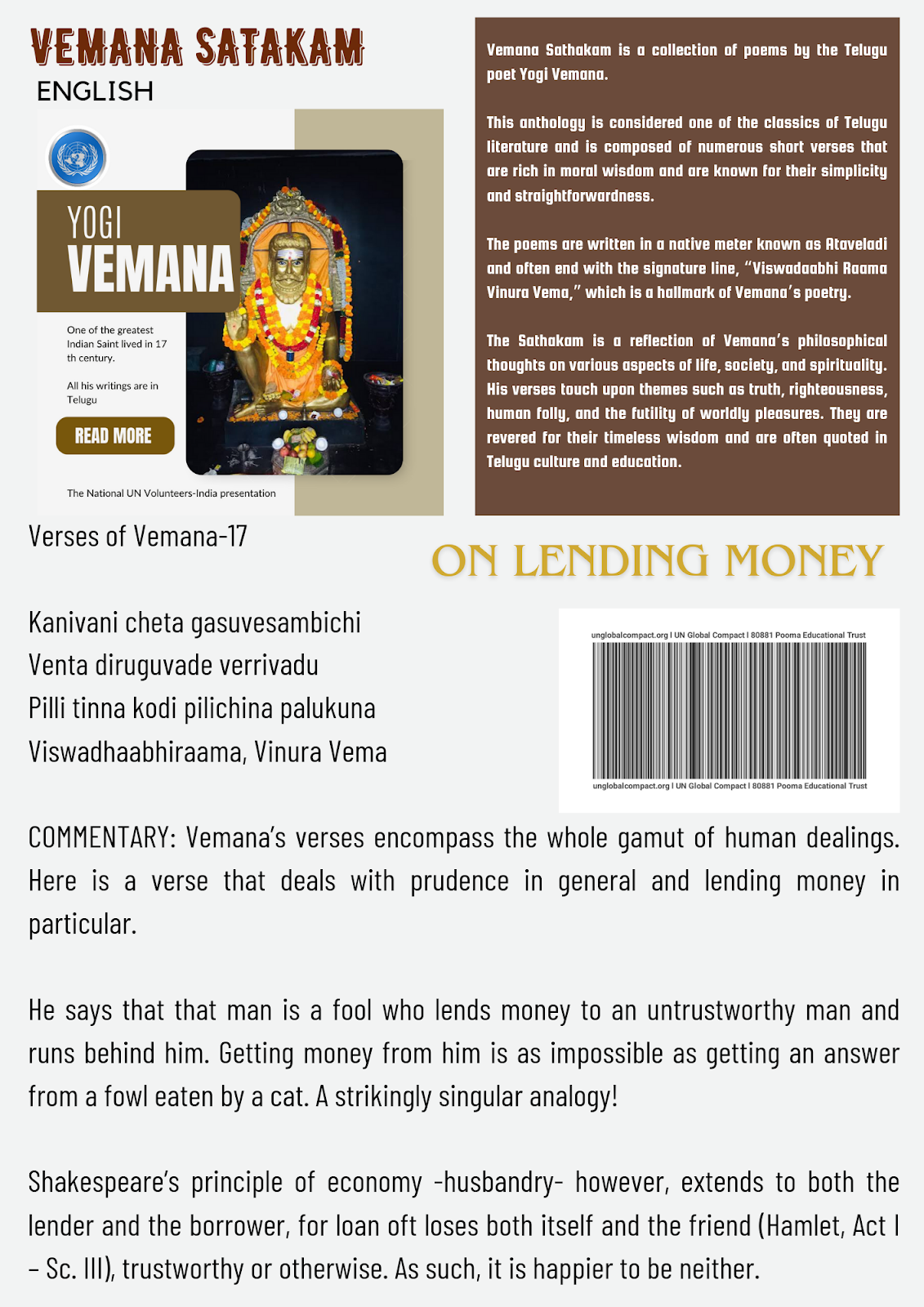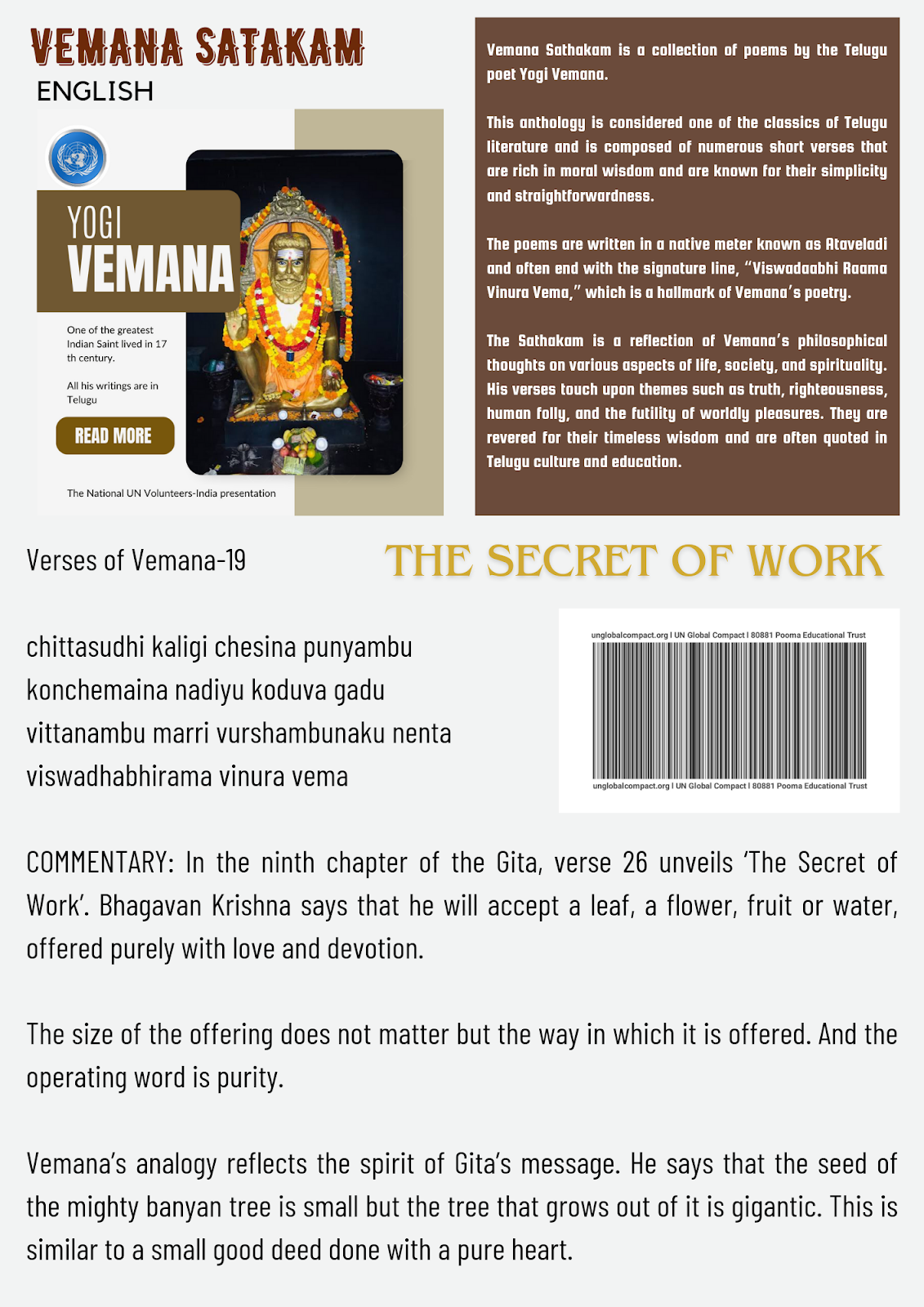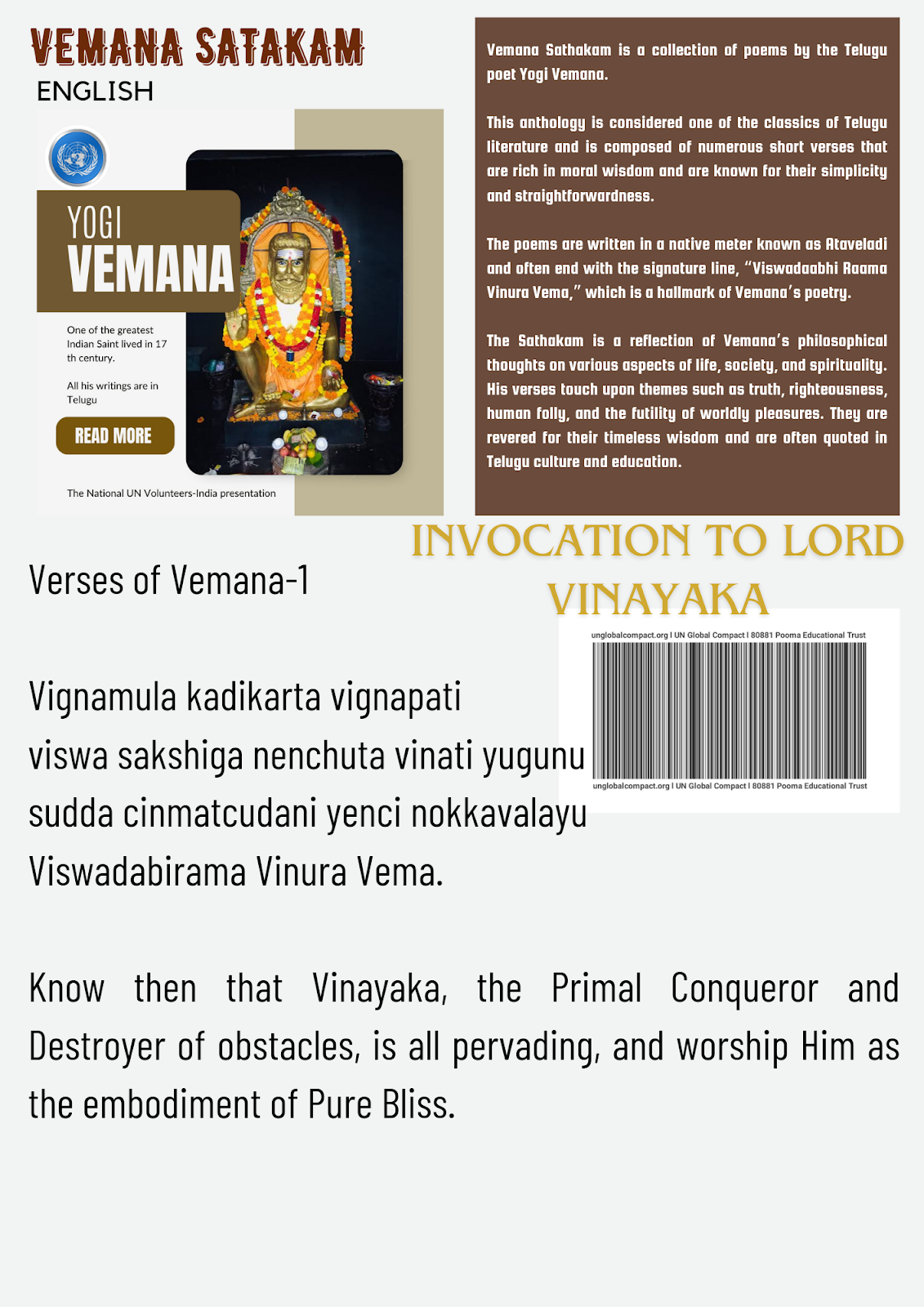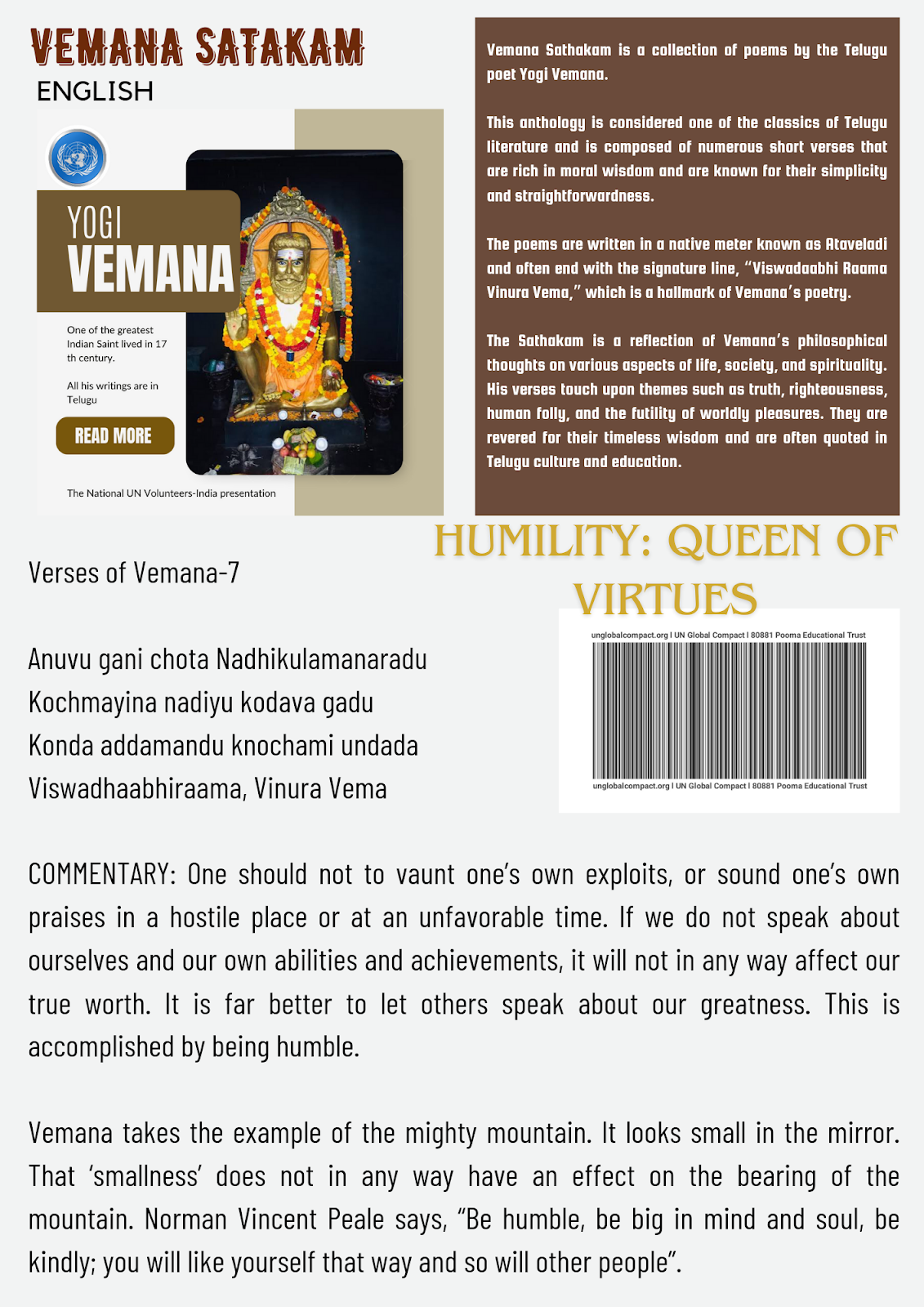Sumansuttam
(JAIN GEETA) தமிழில்
1. Mangalasutra
PRECEPTS ON THE AUSPICIOUS
▪️Namo arahantanam Namo siddhanam Nomo ayariyanam.
Namo uvaljhayanam Namo loe savvashunam. (1)
Obeisance to the Worthy souls.
Obeisance to the Liberated souls.
Obeisance to the Preceptors (Spiritual guides).
Obeisance to the Spiritual Teachers.
Obeisance to all the Saints in the world. (1)
▪️Eso pancanamokkaro, savvapavappanasano
Mangalnam ca savvesim, padhamam havai mangalam. (2)
This five-fold obeisance is destructive of all sins and is the foremost amongst all the auspicious. (2)
▪️Arahanta mangalam. Siddha mangalam. Sahu mangalam.
Kevalipannatto dhammo mangalam..
Arahanta loguttama. Siddha loguttama, Saha loguttama
Kevalipannatto dhammo loguttamo.
Arahante saranam. Siddhe saranam pavvajjami.
Salu saranam pavajjami.
Kevalipannattam dhammam saranam pavvajjami. (3-5)
Auspicious are the Worthy souls. Auspicious are the Liberated souls. Auspicious are the Saints. Auspicious is the Religion preached by the Worthy Souls. Supreme in the world are the Worthy Souls. Supreme in the World are the Liberated Souls. Supreme in the World are the Saints. Supreme in the world is the Religion preached by the Worthy Souls. I seek protection with the Worthy Souls. I seek protection with the Liberated Souls. I seek protection with the Saints. I seek protection with the Religion preached by the Worthy Souls. (3-5)
▪️Thayahi panca vi gurave, mangalacausaranaloyapariyariye.
Nara-sura-kheyara-mahie, arahananaysage vire. (6)
Meditate upon the five Supreme Souls, who afford fourfold shelter for the world and who are auspicious, the greatest among those deserving veneration, victors (over the passions) and worshipped by human beings, vidyadharas (demi-god) and gods. (6)
▪️Ghanaghaikammamahana, tihuvanavarabhavvakamalamattanda.
Ariha anantanani, amuvamasokkha javantu jae. (7)
May there be glory in this world to the Worthy Souls (Arhats) who have destroyed the dense of destructive Karmas, who like the sun bloom forth the louts like hearts of devoted persons capable of liberation, and who are possessed of infinite knowledge and excellent bliss. (7)
▪️Atthavihakammavivala, nitthiyakajja panarthasamsaru.
Ditthasavalatthasara, siddha siddhim mama disantu. (8)
May the path of emancipation be shown to me by the Liberated Souls who have freed themselves from the eight kinds of Karmas, have attained complete fulfilment, have freed themselves from the cycles of births and deaths and who have known the essence of all the things. (8)
▪️Atthavihakammavivala, nitthiyakajja panarthasamsaru.
Pancumahayvayannga, takkaliya-saparasamaya-sudadhara Nanagunaganabhariya, airiya mama paxidantu. (9)
May the preceptors, who are elevated by the five great vows, well versed in their own Scriptures as well as in other contemporary scriptures and endowed with numerous virtues, be pleased with me. (9)
▪️Annanaghoratimize, durantatiramhi hindamanпатот.
Blaviyanuljaoyayara, uvajjhaya varamadim dentu (10)
May the spiritual teachers, who show the path of illumination of the Souls capable of liberation but are groping in the dense and impassable darkness of ignorance, grant me excellent wisdom. (10)
▪️Thiradhariyasilamala, vavagavaraya jasohapadihazaka Bahwinayablusiyangu, suhaim sahu payacchantu. (11)
May the saints, who have adorned themselves firmly with the garland of virtues, earned a glorious reputation and are devoid of attachments, and are the embodiments of humility, grant me happiness. (11)
▪️Arihanta, asarira, avariya, uvajjhaya munino.
Pancakkharanippanno, omkaro panca paramitthi. (12)
The word Om is denotative of five supreme spiritual guides, because it is made of five first letters (aa, a, u and m) of Arhat, Asariri F(Siddha) Acarya, Upadhyaya and Muni. (12)
▪️Usahamajiyam ca vaade, sambhavamabhinandanam ca sumaim ca.
Peumappaham supasam. Jinam ca candappakam ca vande. (13)
I bow to the Jinas: Rsbha, Ajita, Sambhava, Abhinandna, Sumati, Padmaprabha, Suparsva and Candraprabha. (13)
▪️Savihim ca pupphavantam, ziyala seyamsa vsupujjam ca. Vimalamananta-bhayavam, dhammam santim ca vandami. (14)
I bow to the Jinasc Suvidhi (Puspadanta), Sitala, Sreyamsa, Vasupujya, Vimala, Ananta, Dharma and Santi (14)
▪️Kunthum ca Jinavariadam, aram ca mailim cu vuvwasam ca namin
Vandami ritthanemim, taka pasam vaddhamanam ca. (15)
I bow to the Jinas: Kunthu, Ara, Malli, Munisuvrata, Nami, Aristanemi, Pariva and Varditamana.(15)
▪️Candehi nimmalayara, aiccehim ahiyam payasrenta. Sayaravaragambhira, siadha siddhim mama disautu. (16)
May the Siddhas (or the Liberated Souls) who are more immaculate than the moons, brighter than the sun and more serene than the oceans, show me the path of liberation. (16)
சுமன்சுத்தம் (ஜெயின் கீதை)
1. மங்களசூத்திரம்
மங்களகரமான விதிகள்
▪️நமோ அரஹந்தானம் நமோ சித்தானம் நோமோ அயரியாணம்.
நமோ உவல்ঘாயநம் நமோ லோ சவ்வஶுநாம் । (1)
தகுதியான ஆத்மாக்களுக்கு வணக்கம்.
விடுதலை பெற்ற ஆன்மாக்களுக்கு வணக்கம்.
போதகர்களுக்கு (ஆன்மீக வழிகாட்டிகள்) வணக்கம்.
ஆன்மிக ஆசிரியர்களுக்கு வணக்கம்.
உலகில் உள்ள அனைத்து புனிதர்களுக்கும் வணக்கம். (1)
▪️ஈசோ பஞ்சனமொக்கரோ, சவ்வபவப்பநாசனோ
மங்கல்நாம் ச சவ்வேசிம், பதமாம் ஹவை மங்களம். (2)
இந்த ஐந்து மடங்கு கீழ்ப்படிதல் அனைத்து பாவங்களையும் அழிக்கும் மற்றும் அனைத்து புண்ணியங்களிலும் முதன்மையானது. (2)
▪️அரஹந்த மங்கலம். சித்த மங்கலம். சாஹு மங்கலம்.
கேவலிபன்னட்டோ தம்மோ மங்களம்..
அரஹந்த லோகுத்தமா. சித்தலொகுத்தமா, சஹா லொகுத்தமா
கேவலிபன்னட்டோ தம்மோ லொகுத்தமோ.
அரஹந்த் சரணம். சித்தே சரணம் பவ்வஜ்ஜாமி.
சாலு சரணம் பவஜ்ஜாமி.
கேவலிபந்நத்தம் தம்மம் சரணம் பவ்வஜ்ஜாமி. (3-5)
மங்களகரமானவர்கள் தகுதியான ஆத்மாக்கள். முக்தி பெற்ற ஆத்மாக்கள் சுபமானவர்கள். துறவிகள் சுப. மங்களகரமானது தகுதியுள்ள ஆத்மாக்களால் உபதேசிக்கப்படும் மதம். உலகில் உயர்ந்தவர்கள் தகுதியான ஆத்மாக்கள். உலகில் உயர்ந்தவர்கள் விடுதலை பெற்ற ஆத்மாக்கள். உலகில் உயர்ந்தவர்கள் புனிதர்கள். உலகில் உயர்ந்தது தகுதியான ஆத்மாக்களால் உபதேசிக்கப்படும் மதம். நான் தகுதியான ஆத்மாக்களிடம் பாதுகாப்பைத் தேடுகிறேன். விடுதலை பெற்ற ஆன்மாக்களிடம் நான் பாதுகாப்பைத் தேடுகிறேன். நான் புனிதர்களிடம் பாதுகாப்பு தேடுகிறேன். தகுதியான ஆத்மாக்களால் பிரசங்கிக்கப்பட்ட மதத்தைக் கொண்டு நான் பாதுகாப்பைத் தேடுகிறேன். (3-5)
▪️தயாஹி பஞ்ச வி குரவே, மங்களசௌசரணலோயபரியாரியே.
நர-ஸுர-கேயர-மஹி, ஆரஹநஸேகே விரே. (6)
ஐந்து பரமாத்மாக்களை தியானியுங்கள், அவர்கள் உலகத்திற்கு நான்கு மடங்கு தங்குமிடம் கொடுக்கிறார்கள் மற்றும் மங்களகரமானவர்கள், வணக்கத்திற்கு தகுதியானவர்களில் பெரியவர்கள், (ஆவேசங்களை வென்றவர்கள்) மற்றும் மனிதர்கள், வித்யாதரர்கள் (டெமி-கடவுள்) மற்றும் கடவுள்களால் வணங்கப்படுகிறார்கள். (6)
▪️கனகைகம்மமஹானா, திஹுவானவரபவகமளமத்தண்டா.
அரிஹ அநந்தநநி, அமுவமசோக்க ஜவந்து ஜே. (7)
அழிவுகரமான கர்மாக்களை அழித்த, சூரியனைப் போல, முக்தி பெற்றவர்களின் இதயங்களைப் போன்ற பேரொளிகளை மலரச் செய்யும், அளவற்ற அறிவையும், சிறந்த பேரின்பத்தையும் உடைய தகுதியுள்ள ஆத்மாக்களுக்கு (அர்ஹத்கள்) இவ்வுலகில் மகிமை உண்டாகட்டும். . (7)
▪️அத்தவிஹகம்மவிவல, நித்தியகஜ்ஜ பநர்த்தசம்சாரு.
தித்தஸவலத்தஸார, சித்த ஸித்திம் மம திஸந்து. (8)
எட்டு வகையான கர்மாக்களிலிருந்தும் விடுபட்டு, பூரண நிறைவை அடைந்து, பிறப்பு இறப்பு சுழற்சியில் இருந்து விடுபட்டு, எல்லாவற்றின் சாரத்தையும் அறிந்த முக்தி பெற்ற ஆத்மாக்கள் எனக்கு முக்தியின் பாதையைக் காட்டட்டும். (8)
▪️அத்தவிஹகம்மவிவல, நித்தியகஜ்ஜ பநர்த்தசம்சாரு.
பஞ்சுமஹய்வயங்க, தக்கலிய-சபரசமய-சுதாதர நானகுணகனபரிய, ஐரிய மம பக்ஷிதந்து. (9)
ஐம்பெரும் வாக்குகளால் உயர்ந்தவர்களும், தங்கள் சொந்த வேதங்களிலும் மற்ற சமகால நூல்களிலும் சிறந்து விளங்குபவர்களும், எண்ணற்ற நற்குணங்களை உடையவர்களுமாகிய ஆசான்மார்கள் என்னைப் பற்றி மகிழ்ச்சியடையட்டும். (9)
▪️அன்னநாகோரடிமைஸ், துரந்ததிரம்ஹி ஹிந்தமன்பதோட்.
பிளவியனுல்ஜயோயரா, உவஜ்ழய வரமதிம் டெந்து (10)
முக்தி பெறக்கூடிய ஆன்மாக்களின் ஒளியின் பாதையைக் காட்டும், ஆனால் அறியாமையின் அடர்ந்த மற்றும் கடந்து செல்ல முடியாத இருளில் தத்தளிக்கும் ஆன்மீக ஆசிரியர்கள், எனக்கு சிறந்த ஞானத்தை வழங்கட்டும். (10)
▪️திரதாரியசிலாமலா, வவகவராய ஜசோஹபதிஹாசக பஹ்வினயப்லுசியங்கு, சுஹைம் சாஹு பயச்சந்து. (11)
நற்பண்புகளின் மாலையால் தங்களை உறுதியாக அலங்கரித்து, புகழ்மிக்க நற்பெயரைப் பெற்று, பற்றுகள் அற்ற, பணிவின் திருவுருவங்களான மகான்கள் எனக்கு மகிழ்ச்சியைத் தரட்டும். (11)
▪️அரிஹந்தா, அசரீரா, அவரியா, உவஜ்ஜய முனினோ.
பஞ்சக்கரணிப்பண்ணோ, ஓம்காரோ பஞ்ச பரமித்தி. (12)
ஓம் என்ற சொல் ஐந்து உயர்ந்த ஆன்மீக வழிகாட்டிகளைக் குறிக்கிறது, ஏனெனில் இது அர்ஹத், அசரீரி எஃப் (சித்த) ஆசார்யா, உபாத்யாயா மற்றும் முனி ஆகிய ஐந்து முதல் எழுத்துக்களால் ஆனது. (12)
▪️உஸாஹமாஜியம் ச வாதே, ஸம்பவமாபிநந்தனம் ச ஸுமைம் கா.
பெயூமப்பஹம் சுபாசம். ஜினம் ச சண்டப்பகம் ச வந்தே. (13)
ஜினாக்களுக்கு நான் தலைவணங்குகிறேன்: ரூபா, அஜிதா, சம்பவா, அபிநந்தனா, சுமதி, பத்மபிரபா, சுபர்ஸ்வா மற்றும் சந்திரபிரபா. (13)
▪️சவிஹிம் கா புப்பவந்தம், ஜியால சேயம்ச வ்சுபுஜ்ஜம் கா. விமலமாநந்த-பயவம், தம்மம் சாந்திம் ச வந்தமி. (14)
ஜினஸ்ச் சுவிதி (புஸ்பதாந்தா), சீதாலா, ஸ்ரேயாம்சா, வசுபூஜ்யா, விமலா, அனந்தா, தர்மா மற்றும் சாந்தி (14) ஆகியோரை வணங்குகிறேன்.
▪️குந்தும் ச ஜினவரிடாம், ஆரம் கா மயிலம் கு வுவ்வாசம் சி நமின்
வந்தமி ரித்தனேமிம், தக பாசம் வத்தமானம் ச. (15)
குந்து, ஆரா, மல்லி, முனிசுவ்ரதா, நமி, அரிஸ்டநேமி, பரிவா மற்றும் வர்திதமானா ஆகிய ஜின்களை வணங்குகிறேன்.(15)
▪️காண்டேஹி நிம்மலயாரா, ஐச்சேஹிம் அஹியம் பயஸ்ரேந்தா. சாயரவரகம்பீர, ஸியத ஸித்திம் மம திஸௌது. (16)
சந்திரனை விட மாசற்ற, சூரியனை விட பிரகாசமான, சமுத்திரத்தை விட அமைதியான சித்தர்கள் (அல்லது முக்தி பெற்ற ஆத்மாக்கள்) எனக்கு விடுதலையின் பாதையை காட்டட்டும். (16)
















